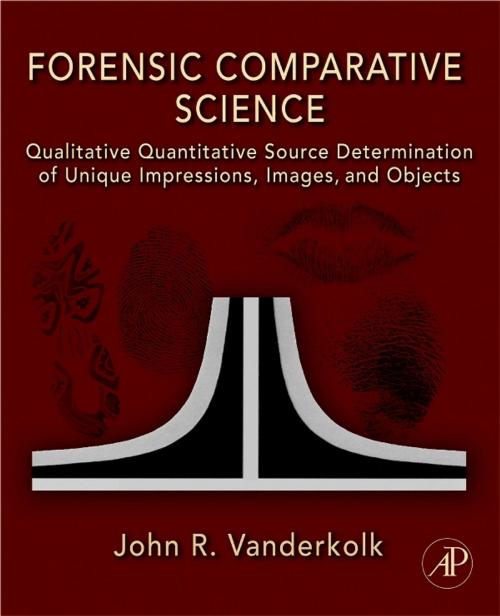Forensic Comparative Science
Qualitative Quantitative Source Determination of Unique Impressions, Images, and Objects
Nonfiction, Reference & Language, Law, Forensic Science, Social & Cultural Studies, Social Science, Crimes & Criminals, Criminology| Author: | John Vanderkolk | ISBN: | 9780080920016 |
| Publisher: | Elsevier Science | Publication: | August 19, 2009 |
| Imprint: | Academic Press | Language: | English |
| Author: | John Vanderkolk |
| ISBN: | 9780080920016 |
| Publisher: | Elsevier Science |
| Publication: | August 19, 2009 |
| Imprint: | Academic Press |
| Language: | English |
While there is no such thing as a perfect match in the field of forensic comparative science, Forensic Comparative Science: Qualitative Quantitative Source Determination of Unique Impressions, Images, and Objects provides the experience, understanding, and judgment, necessary for concluding whether two unique images share common origin from a unique and persistent source. Knowing there will be ranges of different levels of details throughout images, the expert must be able to comprehend when a sufficient quality and quantity of details is reached to render a judgment. By utilizing a process of analyzing the first image, analyzing the second image, comparing them to each other, and evaluating the significance of the analyses and comparisons based on expertise, the comparative scientist will be able to recognize the belief and believe the recognition that occurs during comparative examinations. Forensic Comparative Science presents a philosophical and theoretical approach to explaining the cognitive process of comparative measurements and source determination. Science is about understanding and generalizing nature. This book is about generalizing comparative science.
Brings the comparative sciences under one philosophy of understanding in regards to terminology, examination method and standards for conclusions
Provides standards for conclusions including sufficiency vs. insufficiency for comparisons, individualization, agreement vs. disagreement, and levels of detail required
Not only helps gaining scientific and technical knowledge but also helps to understand and appreciate the importance of the comparative sciences to the criminal justice system
A ‘must read’ for any forensic science student with an interest in comparative sciences, all trainees in forensic laboratories, and active examiners throughout the world wanting a compilation of many disciplines under one generalized philosophy of examination
While there is no such thing as a perfect match in the field of forensic comparative science, Forensic Comparative Science: Qualitative Quantitative Source Determination of Unique Impressions, Images, and Objects provides the experience, understanding, and judgment, necessary for concluding whether two unique images share common origin from a unique and persistent source. Knowing there will be ranges of different levels of details throughout images, the expert must be able to comprehend when a sufficient quality and quantity of details is reached to render a judgment. By utilizing a process of analyzing the first image, analyzing the second image, comparing them to each other, and evaluating the significance of the analyses and comparisons based on expertise, the comparative scientist will be able to recognize the belief and believe the recognition that occurs during comparative examinations. Forensic Comparative Science presents a philosophical and theoretical approach to explaining the cognitive process of comparative measurements and source determination. Science is about understanding and generalizing nature. This book is about generalizing comparative science.
Brings the comparative sciences under one philosophy of understanding in regards to terminology, examination method and standards for conclusions
Provides standards for conclusions including sufficiency vs. insufficiency for comparisons, individualization, agreement vs. disagreement, and levels of detail required
Not only helps gaining scientific and technical knowledge but also helps to understand and appreciate the importance of the comparative sciences to the criminal justice system
A ‘must read’ for any forensic science student with an interest in comparative sciences, all trainees in forensic laboratories, and active examiners throughout the world wanting a compilation of many disciplines under one generalized philosophy of examination















